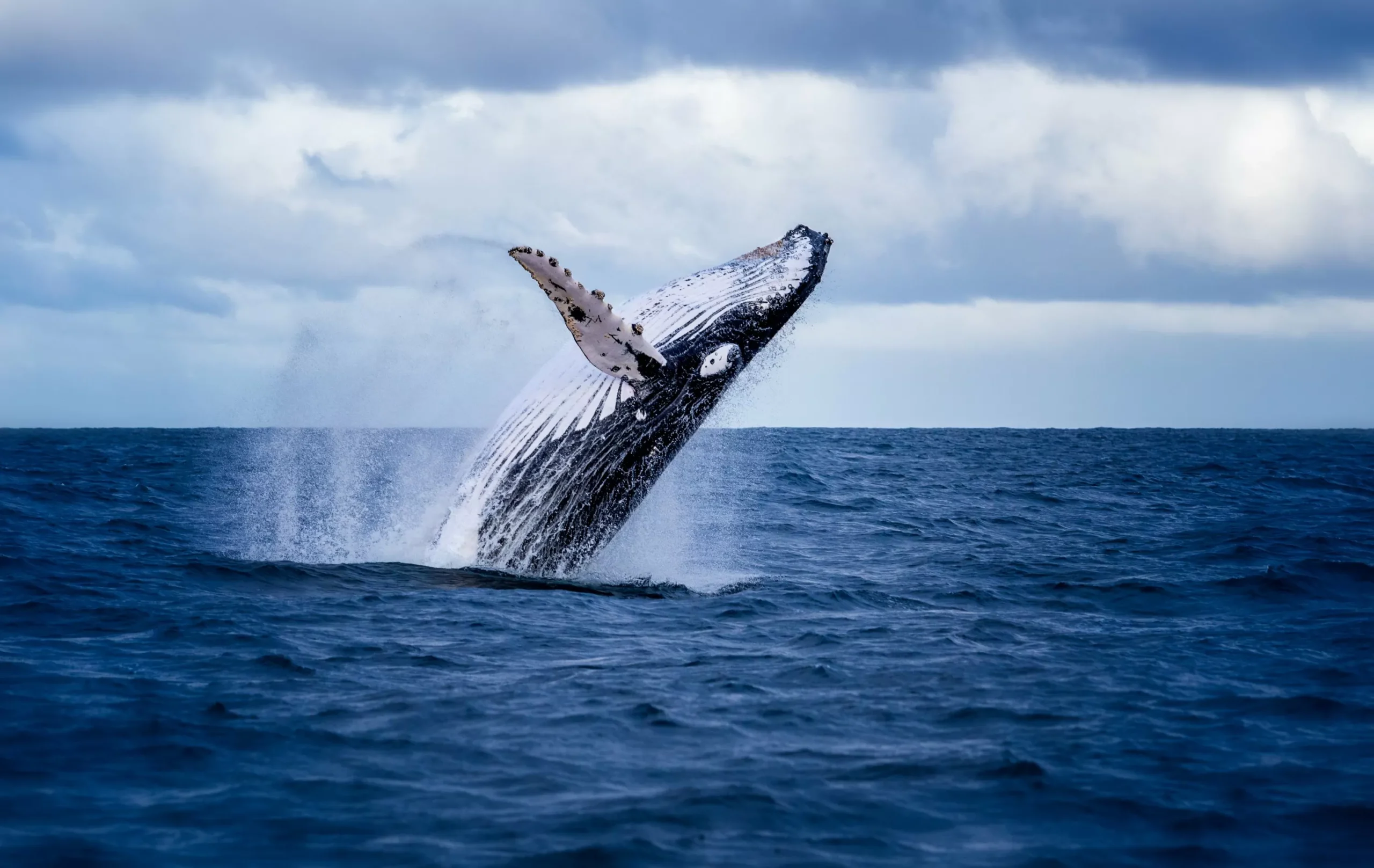The once-thriving population of North Pacific humpback whales is in danger, as a new study has revealed a 20% decline in their numbers in less than a decade. This alarming news was released on Wednesday, and it has scientists and conservationists worried about the future of these majestic creatures.
According to the study, marine heat waves are the main reason for this sharp decline. These heat waves, caused by rising ocean temperatures, have been affecting the feeding and migration patterns of humpback whales. As a result, the whales are not able to find enough food to sustain themselves, leading to a decrease in their numbers.
This decline in humpback whale population is a wake-up call for all of us. It is a reminder that our actions have a direct impact on the natural world around us. The study’s findings highlight the urgent need for us to take action and address the issue of climate change. We cannot afford to ignore the signs any longer.
Humpback whales are a vital part of the marine ecosystem. They play a crucial role in maintaining the balance of the ocean by controlling the population of their prey, such as krill and small fish. With the decline in their numbers, there could be a ripple effect on the entire ocean ecosystem.
The study, conducted by a team of international researchers, analyzed data from over 10,000 humpback whales across the North Pacific. It found that the decline in their numbers is not evenly spread out, with some areas showing a more significant decrease than others. This proves that marine heat waves are indeed the leading cause of the population decline, as these areas have experienced the most frequent and severe heat waves.
This study also highlights the urgency of addressing climate change and its impact on our oceans. We need to take immediate, collective action to reduce our carbon footprint and adopt sustainable practices. It is not just the responsibility of governments and policymakers; each one of us has a role to play in protecting our planet.
The good news is that we still have time to make a difference. We can take steps to reduce our carbon emissions and help mitigate the effects of climate change. Switching to renewable energy sources, reducing plastic consumption, and supporting sustainable fishing practices are all ways in which we can contribute to a healthier planet.
We must also address the issue of marine pollution, which has been a significant threat to humpback whales and other marine species. Plastic pollution, in particular, poses a severe threat to these gentle giants, as they can easily mistake it for food and consume it, leading to health complications and even death.
The decline in humpback whale population is a stark reminder that we are all interconnected, and the well-being of one species has a direct impact on others. As the study’s lead author, Professor Alex Zerbini, puts it, “The whales are telling us a story, and we are not listening.” It is time for us to listen and take action before it’s too late.
The researchers behind the study are hopeful that their findings will help policymakers and conservationists in making informed decisions to protect humpback whales and their habitat. But the responsibility doesn’t solely lie on their shoulders. We, as individuals, also have the power to make a positive impact and turn the tide for humpback whales.
In conclusion, the decline in North Pacific humpback whale population is a cause for concern, but it should also serve as a call to action. We have the power to make a difference, and it’s time to embrace that power and work towards creating a healthier and more sustainable future for all living beings on this planet. Let us listen to the whales’ story and take action before it’s too late.




